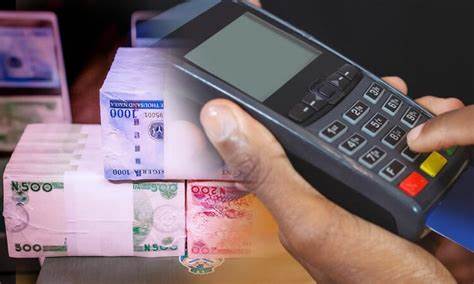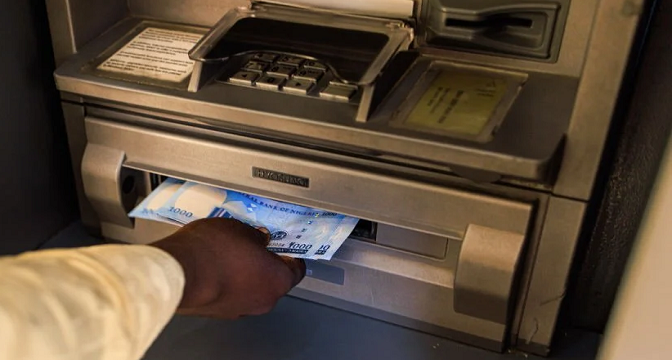In 2024, Nigeria saw point-of-sale (POS) transactions soar to a record N223.27 trillion, more than doubling the N110.35 trillion processed in 2023, according to the Central Bank of Nigeria’s (CBN) latest quarterly bulletin. This surge reflects a growing shift towards digital payments, as ATM withdrawals remained largely stagnant, signalling a major change in how Nigerians manage their finances.
POS transactions outpace ATMs
The total number of POS transactions rose by 32.7 percent year-over-year, reaching 13.08 billion in 2024 compared to 9.85 billion the previous year. Meanwhile, ATM transactions showed only a marginal increase from 1.012 billion to 1.022 billion, underscoring the steady but slow reliance on cash withdrawals.
Despite a slight uptick in ATM withdrawal volumes, the total value rose modestly to N29.12 trillion from N28.21 trillion in 2023, suggesting a slowdown in cash dependency as digital alternatives gain popularity.
Monthly trends show rapid POS growth
Monthly data throughout 2024 revealed sustained growth in POS transaction values. January saw POS payments more than double to N11.50 trillion, while ATM withdrawals dropped significantly from N3.24 trillion to N2.15 trillion year-on-year. This pattern persisted with February’s POS transactions rising 69 percent to N12.46 trillion, even as ATM withdrawals dipped.
The most notable spike occurred in June when POS transaction values nearly doubled from N8.31 trillion in June 2023 to N19.57 trillion. Similar jumps were observed in November and December, with December POS transactions peaking at N31.84 trillion, more than double the previous year.
Enhancing financial inclusion through POS
Through agency banking networks, POS terminals are becoming more widely available in both urban and rural areas, as evidenced by the data.
The statistics indicate a declining dependence on actual cash withdrawals from ATMs for routine transactions, even though ATM usage is still significant.
Convenience, speed, and wider financial access are becoming increasingly preferred, as evidenced by the growing demand for PO systems. However,t the quick expansion also highlights problems like transaction fees and fraud.
Banks leave Nigerians at mercy of POS operators
Despite the arbitrary increase in costs that is typical at the end of the year, there was a surge in POS transactions. POS agents increased fees by almost 100 per cent in December 2024, taking up to N200 for every N5,000 withdrawal.
The majority of banks’ ATMs were empty, leaving many Nigerians vulnerable to POS operators. There was no reprieve within the banks because the majority of them turned away clients who were short on cash, and in the few instances that they did, they could only withdraw N10,000 or N20,000.
This took place even after the CBN warned the banks that they would face penalties if they were discovered to be failing to disburse cash through ATMs.
The CBN previously fined nine Deposit Money Banks N1.35 billion for their failure to use ATMs to guarantee cash availability throughout the holiday season.
Following spot checks that showed non-compliance with the apex bank’s cash distribution norms, each bank was fined N150 million.
First Bank Plc, Fidelity Bank Plc, Keystone Bank Plc, Union Bank Plc, Globus Bank Plc, Providus Bank Plc, Zenith Bank Plc, United Bank for Africa Plc, and Sterling Bank Plc are among the impacted financial institutions. The banks’ CBN accounts would be immediately debited for the penalty.
However, the exorbitant POS transaction fee remains even after the holiday seasons.
POS operators previously blamed the spike on the extreme cash shortage brought on by banks restricting withdrawals and the Federal Inland RevenueService’s’ introduction of the N50 Electronic Money Transfer Levy, which is applied to any electronic inflow of N10,000 or more.
Stamp duty, also known as the electronic money transfer levy, is a one-time fee of N50 applied to electronic receipts or transfers of funds deposited in any account at any commercial money bank or financial institution for amounts exceeding N10,000.
The Federal Government started implementing the policy on fintech platforms,including OPay, Moniepoint, Kuda, and others, on December 1, 2024. Approximately 70 per cent of the POS agent industry is controlled by fintech companies.
Rise in POS-related fraud
Among other issues, the increase in POS transactions has also led to an increase in instances of fraud using this payment method.
In the first quarter of 2024, the frequency of fraud and forgeries in Nigeria’s payment system changed noticeably, with point-of-sale transactions seeing the biggest rise in fraudulent activity.
FITC’s Fraud and Forgeries Report in Nigerian Banks for the first quarter of 2024 states that the number of POS fraud instances increased by 31.12 percent during that quarter.
In Q4 2023, 2,683 fraud cases involving POS terminals were reported. However, by Q1 2024, this figure had increased to 3,518 cases. Of the 11,472 fraud cases reported during the reviewed quarter, 30.67 percent were POS fraud cases.
The majority of fraudulent activities reported in Nigeria during the second quarter of 2024 were also related to computers, mobile devices, and point-of-sale systems.
CBN’s efforts to reduce fraud
Because of this, the CBN set a daily cash-out transaction cap of N100,000 for each individual customer for point-of-sale agents. The apex bank claimed it was a component of new initiatives to prevent fraud and promote Nigeria’s cashless policy.
According to the CBN, clients can withdraw a maximum of N500,000 per week, while agents can only withdraw a total of N1.2 million per day.
The CBN has required that all agency banking transactions be carried out solely through float accounts held with the primary banks in order to maintain accountability.
The Nigerian Inter-Bank Settlement System must receive daily transaction reports, including withdrawal limits and float account balances, electronically via a reporting template supplied by the CBN.
Additionally, all agent banking terminals must be linked to the Payments Terminal Service Aggregator.
The circular highlighted that proprietors of agent banking operations must monitor accounts connected to agents’ Bank Verification Numbers to identify any illegal activity outside of the allocated float accounts.
Additionally, it reaffirmed that principals would bear full responsibility for their agents’ actions and inactions regarding financial services.
The CBN stated its intentions to perform impromptu backend configuration checks and periodic oversight to guarantee compliance.
The circular cautioned that financial fines and administrative punishments would be imposed for any violations of the instruction.
















